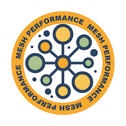The Liver's role in Nutrition
The role of the liver in nutrition.
Bally Parekh MSc. RD
4/2/20251 min read
What is the Liver’s Role in Nutrition?
Your liver is one of the most important organs when it comes to liver health and nutrition in liver disease. It works like a supercharged engine by doing several key things:
Energy Storage:
The liver stores extra energy as glycogen (like a rechargeable battery) so your body can use it later. This is a core part of any healthy liver diet.Food Breakdown:
It breaks down proteins, fats, and carbohydrates into fuel that your muscles, brain, and other organs need. In simple terms, it turns food into energy.Vitamin & Mineral Storage:
The liver stores important vitamins (A, D, E, and K) and minerals, which are essential for your overall health and strong immunity.Protein Production:
It makes proteins (like albumin) that help keep your blood flowing well and control water in your body.Detoxification:
The liver cleans out toxins from the food you eat, ensuring a safer, healthier system.Bile Production:
It produces bile, a special juice that helps break down and digest fats.
When your liver is healthy, these functions run like clockwork. This smooth operation is the backbone of liver disease nutrition and overall well-being.


Get in touch
info@mesh-performance.com



